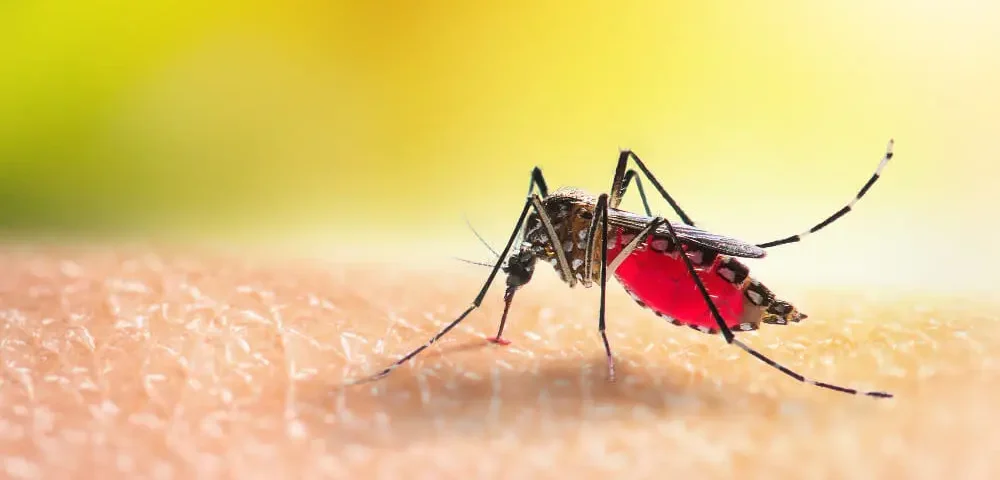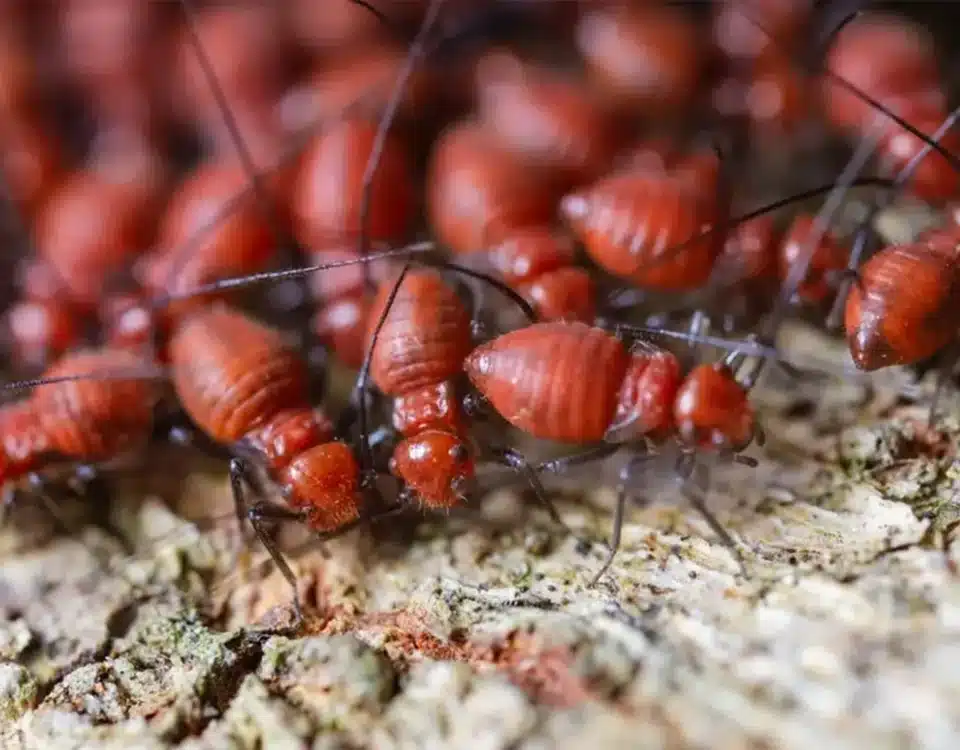Gerry Park
April 29, 2024GMB Website
April 29, 2024Mosquitoes are one of the world’s most troublesome insects. They are the carriers of some of the deadliest diseases known to man, including malaria and yellow fever.
Mosquitoes are a type of insect that belong to the order Diptera. Adult mosquitoes are small, winged insects that feed on the blood of animals and humans by sucking blood through their scissor-like proboscis.
They are responsible for the spread of numerous diseases such as malaria, dengue fever, yellow fever, West Nile virus and others.
Mosquitoes come in many different shapes and sizes, but they all have one thing in common: their bite is itchy and irritating. Some people can develop an allergic reaction to mosquitoes which has been known to cause difficulty breathing or even death when left untreated. And while there are lots of ways you can protect yourself from being bitten, sometimes nothing will work completely, leaving you exposed with no protection at all. That’s where mosquito control comes in – professional pest management experts who specialize in dealing with these insects.
What are mosquitoes and why are they so dangerous
Mosquitoes are two-winged vectors that have an important role in the seasonal distribution of many diseases. These insects can be found living in a broad range of habitats: from rain forests to deserts and backyards.
Mosquitoes are small, black flies with a pair of long legs, which can successfully camouflage themselves on any surface or color, so it is difficult for them to see them. These insects generally feed at night and rest during the day, but they can also behave differently in different environments.
The Aedes mosquitoes transmit most mosquito-borne pathogens and cause outbreaks of vector-borne diseases such as malaria. It’s been found that there is more than one species of mosquito carriers of malaria type parasites – Anopheles – and therefore the main carriers of the deadly disease.
Mosquitoes have many names in different parts of the world but the common English name is mosquito. It belongs to the family Culicidae which includes midges (non-biting flies) and blackflies (the ones who bite). This species is responsible for infecting humans with deadly diseases such as malaria and yellow fever. The scientific name of Aedes aegypti means “African mosquito” since it was first identified in Africa. They are known to carry such viruses as the Dengue Fever, Yellow fever and Chikungunya and are found worldwide, though they thrive in tropical climates.
The size of this insect varies from species to species but it has a slender body covered with scales which vary in color depending on their habitat such as white or light brown for snowy areas and black dots for hot regions. It is well-known that mosquitoes love water – whether stagnant or moving doesn’t matter to them because they suck blood from both animal and human victims using their long proboscis (tubular mouth). A mosquito’s legs consist of six segments with a pair of claws at the end used for grabbing onto objects so that they can rest. They have two compound eyes, each with a lens and over 2000 individual ommatidia which are arranged hexagonally to allow for a wide field of view as well as excellent depth perception. The insect’s wings consist of a forewing(anterior wing) and an hind wing (posterior wing). In males the forewings are smaller than the female’s also known as heterogametic sex because they carry only one kind of sex chromosome.
Male mosquitoes don’t have any external genitalia because they don’t need them! These insects mate by using their long proboscis to pierce the skin of another mosquito and inject sperm directly into its body cavity so that fertilization takes place internally. Females must feed on a sugary substance in order to produce eggs. After feeding on blood, the mosquito injects an anticoagulant into its victims’ body so that it can feed for a longer time before flying away.
The life cycle of these insects is very complex and takes place in four different stages – egg, larva, pupa and adult. The female lays her eggs near water where they will hatch into larvae after hatching. These tiny creatures live in the water until they grow wings and become adults ready to hunt for prey and mate with other mosquitoes! Females lay up to 200 eggs at a time when conditions are favorable thus causing many problems for humans because there are more mosquitoes than ever around! In most cases, both male and female mosquitoes feed on nectar from flowers but they each have different feeding habits.
Mosquitoes are not usually found in the American continents though there are over 3,000 species worldwide and most of them lay their eggs near water such as ponds, rivers and lakes. There is a type that lives in trees which suck blood from birds to continue their lifestyle while another kind lays its eggs underground (inside the soil). All mosquitoes go through three distinct stages during metamorphosis – egg, larva and pupa. Development takes place inside an egg shell called ootheca which is laid at the start of winter during cold weather because it requires less energy and allows for faster development than other seasons.
The adult mosquito feeds on n from flowers in order to lay its eggs near water so that the next stages of development can take place. They suck blood from animals and humans using their long proboscis which is used like a straw to drink it! When these insects are around, they can be very pesky since they gather in swarms to feast on our blood. Because of this, many people are worried about diseases such as malaria and West Nile Virus spreading because of them.
How to get rid of mosquitoes
A mosquito control treatment involves treating an area to eliminate breeding areas for mosquitoes like wetlands and outdoor water fixtures by using larvicides that kill immature forms of the insect. Another method is spraying adult mosquitoes with pesticides to kill them before they can breed. Mosquito netting is another alternative where nets are placed over beds to prevent these insects from biting at night time. Other key components in eliminating the threat of nuisance caused by these bugs are awareness and proper disposal practices; reducing standing water in places like buckets, tires, vases and even dishes can help in controlling mosquitoes.
There are several things you can do to get rid of the bothersome mosquitos such as indoor mosquito traps and insecticides applied outdoors that contain essential oils, pyrethrins or pheromones to lure these insects away from people. Mosquito control is an important step to maintaining a healthy environment free from diseases spread by these pesky insects. The presence of adult female mosquitoes depends upon the temperature and weather conditions present within your area so taking measures and precautionary measures against them should be top priority for all homes, businesses and property owners alike.
The breeding of mosquitoes can be prevented by taking measures that reduce their availability to human habitat, i.e., repair holes in window screens, eliminating old tires or other water receptacles near residential buildings, etc. But if a person is still bitten by an infected mosquito, it is necessary to prevent the development of malaria as soon as possible. There are many treatments for this disease, like: antimalarial pills (which is not always suitable), self-remedy using herbs from your garden and manual removal with tweezers or a needle
If you’re not sure what type of mosquito you have caught, look carefully at its wings. If they are black, gray, or white in color, then you have an Anopheles. If they are brown with black dots and thick veins in the edges of the wings, then they are Aedes.
Do it yourself recipes and natural remedies
Here are a few all-natural ways to discourage mosquitoes from your home –
First of all, you need to get rid of the standing water in your area such as flower pots, gutters, birdbaths, and other containers that can hold water. Then place cucumber slices or fresh cut garlic around the areas where you usually sit. Mosquitoes find these smells offensive; so do yourself a favor and plant marigolds near your sinks and drains because they smell worse than anything else on earth for these annoying little bugs. Also, mixing one part cinnamon with three parts sugar is another good thing to spread around infested areas. For extra measure add some cayenne pepper since this spice repels insects and attracts other mammals that eat mosquitoes. Some other effective remedies for getting rid of these annoying mosquitoes are – spreading wood ash, placing a few drops of oil from citronella candles around the area or adding essential oils such as lemon grass, eucalyptus, clove oil, and thyme to water.
The first thing you should do when there’s an infestation of mosquitoes is to find out what type of mosquito lives in your area because each one kills them differently. If it’s Aedes aegypti for example, a professional may use two methods – pesticide sprays or fogs (aerosols) which float over the area and kill them off. If you choose an organic way to get rid of mosquitoes, then you can use plants such as garlic, castor beans or even bat guano (bat droppings)! These can help to naturally repel mosquitoes in your yard so that they won’t bite you at night!
Since mosquitoes are attracted to light, there are many people who like to buy special lamps containing ultraviolet light because it kills insects when they come near. If this doesn’t work for you, then you may want to try one of these homemade mosquito traps – a bottle with water and some sugar mixed together on a tray outside your home will attract them. A fan with flashlight bulbs inside which is hung from trees will also work to get rid of some of the insects.
A much safer way is to use a professional since they have better tools and know just what to do when it comes to getting rid of mosquitoes permanently! They’ll come around your home at dusk during summer and spray an organic solution which kills off these insects within minutes. After this, you won’t have any more problems with them for as long as several months in some cases (depending on their life cycle)! The solution used works from the inside out so that mosquitoes cannot develop resistance which is one of its major benefits.
Pest c professionals will provide mosquito control treatments for your home and property. This includes fogging, spraying, chemical spraying, and insecticide spraying. They will come to your home once a week for the duration of one month to make sure that there are no mosquitoes at all. They are an efficient solution to pesky mosquitoes!
Mosquitoes are one of the world’s most troublesome insects, carriers of some of the deadliest diseases known to man. They can be difficult for people with a healthy immune system to fight off, but they don’t stand much chance against our mosquito control specialists! Whether you want your home treated or entire property maintained regularly, we offer effective and affordable solutions that will keep these pests away from you and your loved ones. Let us know if you have any questions about preventing mosquitos in general – we look forward to hearing from you soon!





